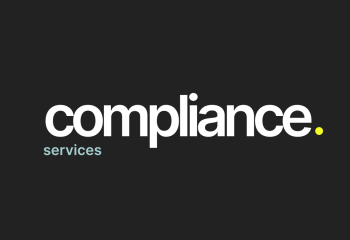The Role of Internal Audit in Tax Compliance Management: Ensuring Transparency and Efficiency
Views: 923
In today’s complex business environment, tax compliance is a critical requirement to ensure sustainable growth and maintain corporate credibility. Constantly evolving tax regulations demand that businesses establish robust control systems to avoid errors and legal risks. Internal audit plays a crucial role in monitoring, evaluating, and optimizing tax compliance processes. Effective oversight not only mitigates risks but also enhances transparency, improves financial performance, and optimizes tax obligations.
%20(3).png)
The Role of Internal Audit in Tax Compliance
a) Assessing and Strengthening Tax Control Systems
Internal audit helps businesses identify gaps in tax declaration and payment processes. By analyzing, reviewing, and recommending improvements, internal audit contributes to the standardization of procedures and ensures compliance with prevailing regulations. Identifying and addressing weaknesses in the tax control system minimizes errors and enhances the accuracy of tax reporting.
b) Monitoring and Ensuring Transparency
Transparency in tax management is essential to avoid disputes and unexpected audits by tax authorities. Internal audit conducts periodic reviews, reconciles financial data, and ensures that all financial transactions are accurately recorded in compliance with tax policies. A precise and comprehensive reporting system enables businesses to proactively address inquiries from regulatory bodies when necessary.
c) Managing Tax Risks
Tax risks can arise from policy changes, declaration errors, or inaccuracies in applying tax regulations. Internal audit helps businesses identify, measure, and implement risk control measures, thereby minimizing the chances of tax penalties or additional tax assessments. Moreover, internal audit can provide recommendations to enhance tax management capabilities, reducing the impact of regulatory changes on business operations.
d) Supporting Tax Optimization Strategies
Beyond compliance, internal audit contributes to optimizing a company’s tax obligations. By analyzing financial data and recommending effective strategies, businesses can legally take advantage of tax incentives, thereby improving financial efficiency. A well-planned tax strategy helps businesses balance regulatory compliance with financial benefits.
Benefits of Internal Audit in Tax Management
· Minimizing errors in tax declarations through a stringent control process, reducing the risk of unnecessary penalties.
· Enhancing corporate credibility and transparency in financial reporting and management, fostering trust among investors, partners, and tax authorities.
· Protecting businesses from legal risks, preventing fines, tax reassessments, and sudden audits by regulatory bodies.
· Optimizing tax costs, enabling businesses to utilize financial resources more efficiently and gain a competitive market advantage.
· Strengthening tax governance capabilities, helping finance and accounting teams better understand tax regulations and apply them accurately, leading to more informed financial decisions.
Conclusion
Internal audit is a crucial tool for businesses to maintain tax compliance, enhance transparency, and optimize financial efficiency. A strong internal audit system not only safeguards businesses from risks but also helps them operate more effectively, minimize unnecessary costs, and improve competitiveness. Investing in internal audit brings both short-term benefits and long-term sustainability, providing a solid foundation for businesses in an increasingly stringent regulatory environment.
Written: Hoang Viet - Accounting Assistant
Date: 05/03/2025
%20(3).png)

























![?️ [ALTAS TALK IS COMEBACK | SERIES: “TAX MATTERS 2025”] ?️ [ALTAS TALK IS COMEBACK | SERIES: “TAX MATTERS 2025”]](thumbs/210x144x1/upload/news/altas-talkintro-7705.png)



